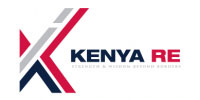Testimonials

“We’ve engaged Soft Skills Ltd for Senior Management team building programs over the years and their delivery is outstanding. We recommend them wholeheartedly”
Faith Marete
Competition Authority Of Kenya

“Soft Skills Programs always deliver value in content and execution. Their staff are friendly, professional and a great pleasure to work with.”
Sally Waigumo
Kenya Reinsurance Corporation

- SOFT SKILLS LTD. offers a variety of content-rich programs delivered by friendly and professional staff. We have engaged them a number of times and have never been disappointed.
Caren Oduor
Nuclear Power and Energy Agency (NuPea)

The KBA School has engaged with Soft Skills Limited on several trainings including team building which was our recent activity. The company has qualified, skilled, seasoned and professional trainers who understand their client needs and deliver more than required. We always go back to Christine Mweteeli and her team to conduct our trainings.
CHRP ELIZABETH N. NJAU
THE KBA GROUP OF SCHOOLS

“Soft Skills Ltd assisted shine a spotlight on an essential aspect of the skills required of us as lawyers – communication. We remain forever grateful to them for their impactful training”.
Arthur Igeria
Igeria and Ngugi Advocates

“I would say the trainings have rich content with excellent delivery. Professionally the company is top notch”
Prof. Eucharia Kenya
University of Embu













